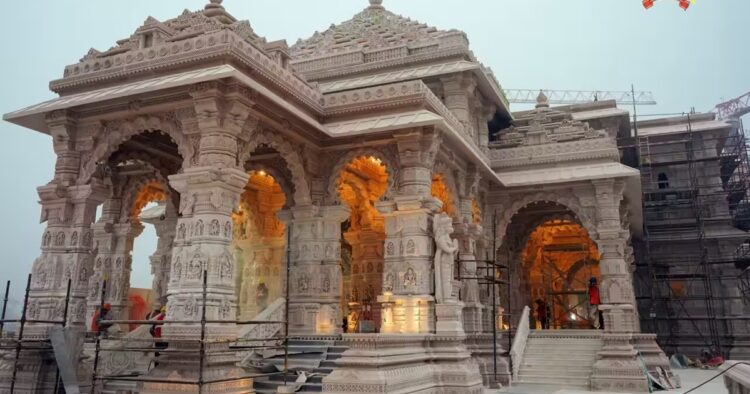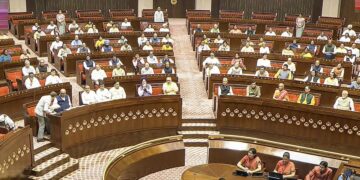On January 22, the long-awaited inauguration of the Ram Janmabhoomi Mandir in Ayodhya, Uttar Pradesh, is set to take place. The temple, built at the believed birthplace of Lord Ram, has been a significant religious and cultural project. The consecration ceremony, beginning on January 16, involves sacred rituals, culminating in the placement of Lord Ram’s statue within the temple, with Prime Minister Narendra Modi conducting the ceremony.
Managed by the Shri Ram Janmbhoomi Teerth Kshetra trust, the temple boasts a blend of traditional aesthetics and modern engineering. Spanning over 10,000 square meters with three floors, 392 pillars, and 44 doors, it mirrors Ayodhya’s historical grandeur. Notably, no iron was used in construction, and the foundation features a unique appearance resembling artificial rock. The temple complex includes a Pilgrims Facility Centre catering to 25,000 people, providing medical and other facilities. The project, undertaken by Bharat’s Larsen & Toubro group, is expected to cost over $360 million.
The controversy arises from the temple’s location, formerly occupied by the Babri Masjid, a mosque demolished in 1992, leading to riots and hundreds of casualties. A legal battle ensued, and in 2019, the Supreme Court awarded the contested land to the Hindu community for the temple’s construction, with an alternative piece allocated to the Muslim community. The decision was based on findings by the Archaeological Survey of India suggesting non-Islamic origins beneath the mosque ruins.
In Australia, the Hindu community plans to celebrate the temple’s inauguration with events nationwide. A sacred urn, Kalash Yatra, sent from Ayodhya, will be processed among temples for devotees to offer prayers. Community leaders express joy at witnessing the temple’s construction and acknowledge its cultural significance. Live streams of the ceremony will be hosted in various Australian cities.
The event has sparked diverse reactions within the Australian Bharatiya community. Some view it as a significant religious milestone, while others, like Melbourne resident Bushra Hassan, express concerns about the temple’s construction, viewing it as a political move. Some critics, such as international relations student Rajanikhil Malaramuthan, believe the temple is a political gesture ahead of the 2024 elections and question its archaeological basis.
Political analyst Grant Wyeth, based in Melbourne, suggests that the temple’s inauguration will be closely watched by the Indian diaspora in Australia. Opinions vary, with some celebrating it as a symbol of new Indian nationalism, while others view it as a political event, expressing caution about its implications.
The inauguration of the Ram Temple in Ayodhya is a historic event that resonates deeply within the Hindu community. However, it also remains a topic of controversy, reflecting the complex intersection of religion, politics, and history. The reactions within the Australian Bharatiya community highlight the diversity of perspectives surrounding this significant cultural moment.

















Comments